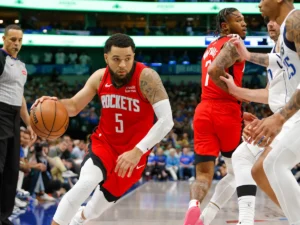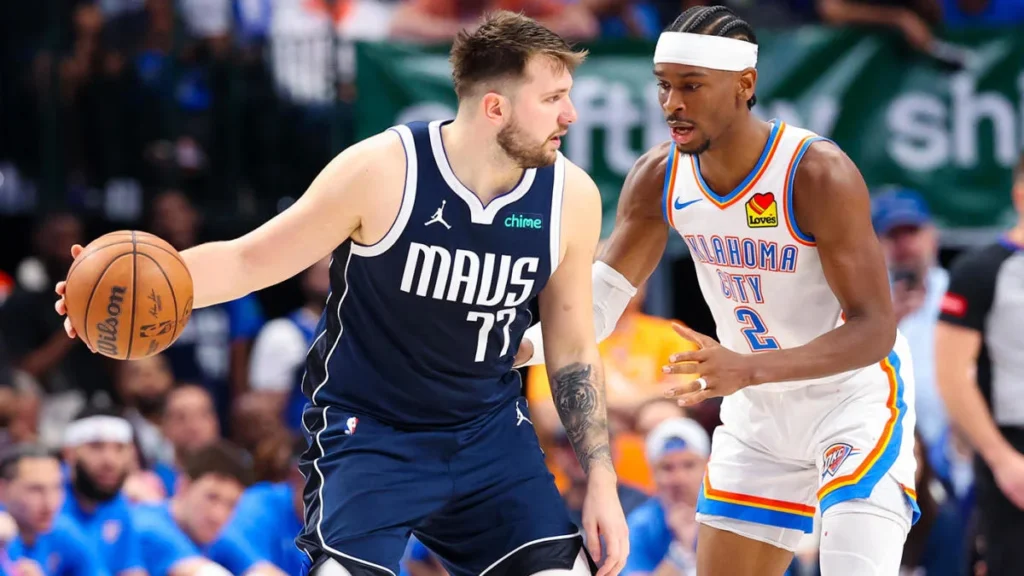Overview of the Match
The matchup between the Houston Rockets and the Dallas Mavericks holds significant importance in the current NBA season, particularly for both teams’ standings in the Western Conference. As rivals geographically and historically, the intensity escalates whenever these two franchises face each other. The rivalry dates back many years, characterized by memorable encounters that have contributed to the competitive spirit and narratives surrounding both squads. With each team vying for a coveted playoff position, their games have taken on greater urgency as the season progresses.
The atmosphere in the arena during the game was electrifying, with fans from both sides passionately supporting their respective teams. The sell-out crowd reached fever pitch as the teams took to the court, underscoring the strong local following both the Rockets and Mavericks enjoy. This game was not only about competing for points on the board; it represented a clash of cultures, highlighted by the high-octane style of play associated with the Rockets and the tactical versatility exhibited by the Mavericks. Players and coaches alike were aware of the psychological impact the result could have on their playoff aspirations.
Key Players to Watch
The matchup between the Houston Rockets and the Dallas Mavericks showcased several standout athletes whose performances significantly influenced the game’s outcome. For the Rockets, the spotlight was on their leading scorer, Jalen Green. Green’s explosive offensive capabilities were on full display as he registered an impressive 28 points, demonstrating his ability to penetrate defenses and finish at the rim. His skill set extends beyond mere scoring; he also contributed five assists, showcasing his role as a facilitator for the Rockets. Additionally, Green’s defensive efforts, while not always quantified by statistics, played a crucial role in disrupting the Mavericks’ rhythm during key stretches of the game.
On the Mavericks side, Luka Dončić continues to prove his mettle as one of the league’s premier players. In this match, he accumulated 32 points, along with 10 rebounds and 8 assists, coming exceptionally close to a triple-double. Dončić’s court vision and ability to create shots not only for himself but also for his teammates were pivotal in keeping the Mavericks competitive throughout the matchup. His knack for executing clutch plays during the closing minutes of the game exemplifies his impact on the team’s overall performance. An electrifying moment was when he sank a pivotal three-pointer that shifted the momentum back in favor of the Mavericks.
Furthermore, Christian Wood of the Rockets was instrumental in both scoring and rebounding, ending the game with 22 points and securing 12 rebounds. Wood’s versatility allows him to stretch defenses, making him a valuable asset to the Rockets’ offensive strategy. These key players not only demonstrated their individual capabilities but also highlighted the importance of teamwork as they executed their respective roles, significantly impacting the game’s dynamics. Understanding their contributions provides a deeper insight into how individual performances culminate in the larger narrative of team success.

Statistical Breakdown
In the recent matchup between the Houston Rockets and the Dallas Mavericks, various player statistics played a pivotal role in determining the outcome of the game. Through a detailed examination of the key metrics, we can gain insights into the performance levels of each team.
First, let us consider the points scored by individual players, which serve as a primary indicator of offensive effectiveness. For the Rockets, the standout performer was Jalen Green, who contributed 28 points, showcasing his shooting prowess from beyond the arc. In contrast, Luka Dončić from the Mavericks delivered an impressive performance, racking up 32 points, reflecting his ability to score from both mid-range and long-range positions.
Rebounds are another critical measure of player impact; they indicate a player’s involvement in the game beyond scoring. Alperen Şengün recorded 12 rebounds for the Rockets, demonstrating his effectiveness on the boards, while Dwight Powell matched this effort with 11 rebounds for the Mavericks, emphasizing the importance of interior presence in securing possession.
Assists are vital for assessing playmaking abilities and the overall collaboration on the court. Kevin Porter Jr. of the Rockets managed 7 assists, facilitating ball movement effectively, while Spencer Dinwiddie contributed with 6 assists for the Mavericks, showing his role in creating scoring opportunities for teammates.
Defensively, steals provide insight into players’ ability to disrupt the opposing offense. Tari Eason excelled for the Rockets with 3 steals, while Dorian Finney-Smith recorded 2 for the Mavericks, illustrating their defensive contributions.
Shooting percentage further adds context to these statistics. The Rockets shot 45% from the field, whereas the Mavericks maintained a slightly higher percentage of 48%. These numbers reflect each team’s efficiency and shooting accuracy, which are crucial for securing victories in competitive matchups.
Overall, the statistical breakdown from the game highlights not only individual performances but also how these contributions affected the overall dynamics and outcome of the match.
Post-Match Analysis and Implications
The recent clash between the Houston Rockets and the Dallas Mavericks delivered a compelling narrative on both teams’ current trajectories in the league. Analyzing the player statistics from the match reveals significant implications for their standings and future encounters. The performance of key players, including the offensive and defensive contributions, played a crucial role in determining the outcome of this matchup. For instance, the Rockets were led by an outstanding offensive display from their star player, whose points not only bolstered the team’s score but also set the tone for the overall strategy. Conversely, the Mavericks leaned on their defensive resilience, which was critical in containing the offensive threats posed by their rivals.
From a strategic perspective, the divergence in approach highlights potential areas for improvement. The Rockets may need to work on their defensive unit, given that several lapses allowed the Mavericks to capitalize on fast-break opportunities. This defensive shortfall can significantly hinder their chances in upcoming games, especially against teams with a strong offensive presence. On the other hand, the Mavericks showcased their offensive prowess, but their inconsistency may require more focus in maintaining composure during pivotal moments of the game.
Fan reactions post-match revealed a mix of optimism and concern. Rockets fans expressed frustration over the team’s erratic defense, while Mavericks supporters were buoyed by their team’s ability to secure a tight victory. Expert opinions suggested that the results of this game could have lasting effects on both teams’ playoff aspirations, hinting at a need for incremental improvements as the season progresses. Each team’s ability to address their weaknesses while building on their strengths will be vital as they prepare for their next matchups in a tightly contested league.
You have a diverse range of websites catering to different audiences. Movie lovers can explore Hiidude, while tech enthusiasts can visit TrangoTech. Writers can contribute to UploadArticle, and discovery seekers can check out DiscoverCraze. For financial insights, visit ImpactWealth, while entertainment seekers can browse OnionPlay. If you’re looking for engaging USA-based content, explore ClickMeUSA.
Experience the future of digital exploration through these dynamic platforms bridging tech lifestyle and global trends while celebrating innovation in every form from cutting-edge tools to timeless stories that inspire.
